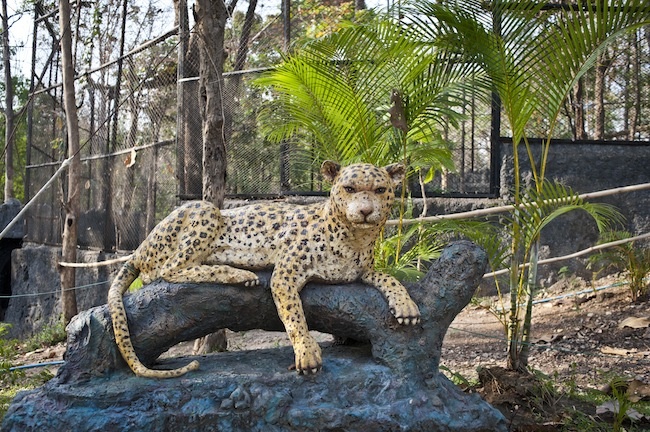The city of Naypyidaw was secretly built by the Burmese military junta in the early 2000s. Its recognition as the new Burmese capital in 2005 caught everyone off-guard—both the international community and the country’s inhabitants. Shortly after the city’s inauguration, thousands of officials, military personnel, and the whole government left the former capital city, Yangon (Rangoun), to resettle 200 miles further north, in the Mandalay region. The project cost the Burmese state more than five billion dollars.
In 2012, while covering the Burmese elections in Rangoun, I took a train to the city the Burmese never really lived in. According to state documents, 930,000 people inhabit Naypyidaw, but the real figures, according to several sources, fall far below that. As soon as I got there, I realized there wasn’t a great deal to do, and ended up passing the time visiting a deserted gemstone museum, shopping in a deserted shopping center, playing golf on a deserted golf course, and visiting the city’s only zoo.
Videos by VICE

From luxurious hotels to shopping centres and even this plastic leopard, everything in Naypyidaw seems artificial – and stupid. The city is a showcase of a place not yet meant to be inhabited.
That’s how I found myself walking around Naypyidaw’s zoological garden on a very warm afternoon. Situated in the northeast of the town, between a soccer stadium that is under construction and a state-of-the-art airport (where no international company operates), Naypyidaw’s zoo reflects the megalomania that the generals in power have been nourishing since 1962. It is three miles long and shelters about 15 real animals —lions, cheetahs, a panther, two elephants, and some dolphins—alongside a number of tropical fish.
I paid for my ticket (a little over one dollar, or the average Burmese’s daily wage) and followed the only other visitors, a group of Chinese tourists. Together, in a country where barely anyone can afford a steak, we watched the lions go through several kilos of red meat. When the show was over, I approached one of the janitors. “This is Disneyland!” he told me. “Everything is artificial. It’s made to give people the impression of greatness but in reality, the whole country is in the gutter.”
An hour later and I had already walked around the whole zoo. I was sitting in the children’s park, sipping a warm Pepsi, when a group of teenagers ran by me into a huge plastic cave. I followed them and realized the place smelt like shit. Through the pen’s dirty window pane, I could make out a few sickly penguins, splashing about in stagnant water alongside floating faeces. Back in Rangoun, a friend told me that the penguins were fed fresh fish that had been flown in by plane from China—an investment that the Burmese state would never spend on its citizens.
More upbeat stories from Burma:
Is the Burmese Army Keeping Rohingya Women as Sex Slaves?
Is Burma’s Anti-Muslim Violence Led by “Buddhist Neo-Nazis”?
